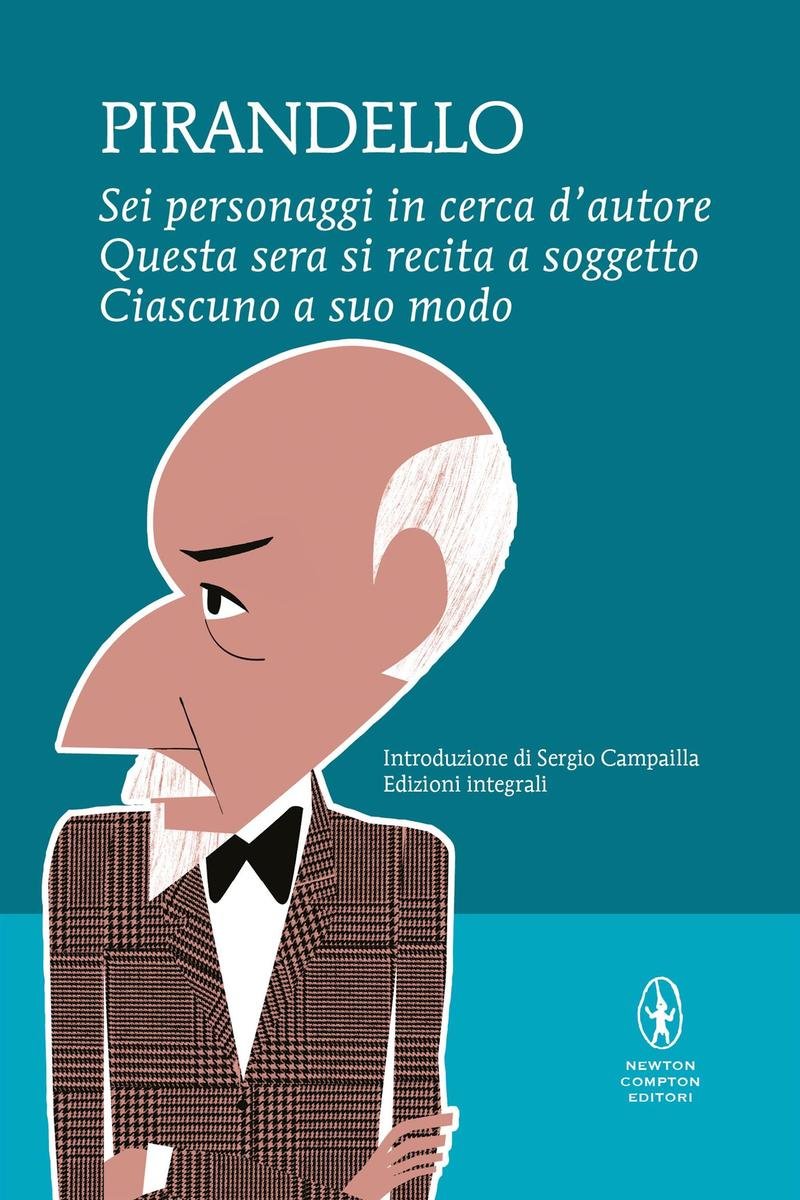Introduzione di Sergio Campailla
Edizioni integrali
Le tre opere qui raccolte sono tra i più famosi dei capolavori di Pirandello e compongono la cosiddetta Trilogia del teatro nel teatro . In Sei personaggi in cerca d´autore (messo in scena per la prima volta a Roma nel maggio 1921) trovano magistrale composizione alcuni temi cari all´autore siciliano: il tragico contrasto tra l´identità e l´apparenza imposta dal ruolo sociale e il fragile confine fra realtà e rappresentazione. In Questa sera si recita a soggetto, che ebbe una prima a Könisberg nel gennaio del 1930 e una prima italiana a Torino nell´aprile dello stesso anno, un regista dispotico e autoritario vuole imporre precisi vincoli formali ai suoi attori. Quando questi si ribellano, rivendicando la loro libertà di espressione, la rappresentazione di una storia di gelosia insopprimibile diventa il pretesto per indagare i rapporti che intercorrono tra il regista-creatore e gli attori e, di conseguenza, il rapporto degli attori con il pubblico. In Ciascuno a suo modo, rappresentata per la prima volta a Milano nel 1924, lo spazio scenico si sdoppia: sul palcoscenico è riprodotta una vicenda di cronaca i cui protagonisti sono presenti in sala, a fianco del pubblico. Attori e spettatori finiranno per giungere alle stesse conclusioni, in ragione di una reciproca influenza tra arte e vita.
Luigi Pirandello
nato ad Agrigento nel 1867, si laureò in filologia a Bonn nel 1891. Iniziò la sua carriera letteraria e teatrale quando Capuana lo introdusse nel mondo culturale romano. Dal 1897 al 1922 si dedicò all´insegnamento. Nel 1934 gli fu assegnato il premio Nobel per la letteratura. Morì a Roma nel 1936. La Newton Compton ha pubblicato, oltre a molte opere in volumi singoli, anche le raccolte Novelle per un anno, Tutti i romanzi e I romanzi, le novelle e il teatro.


